Preparing For Your ASCVD Appointment Checklist
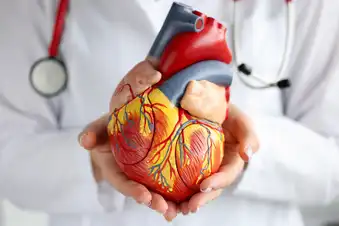
Get to Know Your Specialist
High cholesterol and plaque deposits on artery walls don’t always have noticeable symptoms, but you'll want to address them early. When your doctor recommends a specialist to help you do this, they may suggest a cardiologist, lipidologist, or endocrinologist. You may also see a nephrologist, cardiovascular surgeon, or neurologist. Each approaches the condition from a different angle, so it helps to know about each one.
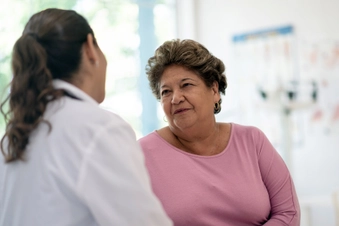
Ready, Set, Prep
There are many pieces of information that your specialist needs to decide on your care. Among the most important are current test results, like bloodwork and possibly imaging studies. If the specialist is within your health network, they may have easy access to them through a care coordination records system. If not, make time to collect them before your appointment.

Create Your Personal Health File
In addition to test results, gather this paperwork to bring with you:
- Your insurance card(s)
- A list of every medication, vitamin, and supplement you take
- The names and contact information for all your other doctors so they can easily confer
- Notes about your own health history and that of close family members -- parents, grandparents, brothers and sisters, and aunts and uncles
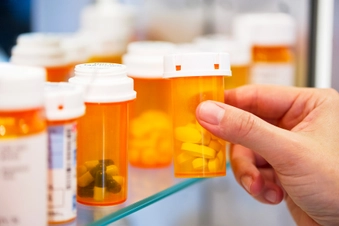
Bring Along Your Medications
Your doctor may need to prescribe a new medication for you or change the dosage for an existing one. To avoid drug interactions, they’ll need to know all medications you take -- in any form -- and the dosage. Bring an up-to-date list that includes prescription and over-the-counter medicines, herbal remedies, vitamins, and supplements. Even better, bring them in their containers so your doctor can see the labels.
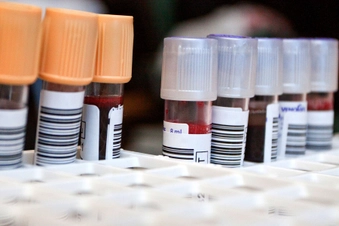
To Fast or Not to Fast?
Your specialist may want to do blood tests as part of your visit. Call the office in advance to see if you’ll need to fast, and if so, for how long. Many doctors have started to do cholesterol testing without fasting because the results don’t differ much and it’s easier on you. But don’t assume this, or you may have to reschedule your appointment.

Write Down Any Symptoms
Even though ASCVD itself doesn’t have symptoms, if you have cholesterol-fueled plaque deposits along artery walls, you might have noticed some signs. These can include chest pain, shortness of breath, and unexplained indigestion.

Create Your Own Questions
Take a few minutes to do some research on high cholesterol, lifestyle changes that may help, and medications that your specialist might prescribe. Then put together a list of questions to ask during your appointment. The amount of new information you’ll get from the doctor might be overwhelming. Having a written list of questions means you won’t forget them.

Master the Logistics
Going to the doctor -- any doctor -- is rarely stress-free. But you can dial down your stress level with some practical steps. Call and ask the office receptionist if you can pre-register and fill out forms in advance to save time in the waiting room. Confirm the office address and where to park, and then decide on the best route to take.

Bring a Buddy
Managing your condition will include a lot of moving parts, like diet, exercise and other lifestyle changes. Your spouse or a close friend or family member can take notes for you. Once you’re home, they’ll be able to help you put all the medical advice into action.
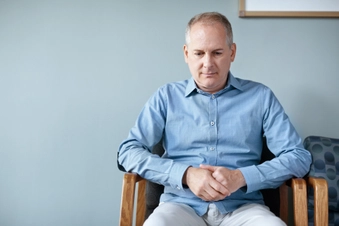
Relax While You Wait
Anxiety about doctor visits is so common there’s even a name for it --iatrophobia. Use any waiting room time to ease nervousness and channel your thoughts. Bring your earbuds and listen to soothing music or a favorite podcast. Or practice mindfulness meditation to get in touch with your feelings, calm yourself, and focus on what you want to accomplish during the appointment.
Show Sources
IMAGES PROVIDED BY:
1) Ivan-balvan / Getty Images
2) FatCamera / Getty Images
3) MirageC / Getty Images
4) Tetra Images / Getty Images
5) Martynasfoto / Getty Images
6) LaylaBird / Getty Images
7) SDI Productions / Getty Images
8) PATSTOCK / Getty Images
9) Morsa Images/ Getty Images
10) shapecharge / Getty Images
SOURCES:
Johns Hopkins Medicine: “High Cholesterol: Prevention, Treatment and Research.”
Cleveland Clinic: “Iatrophobia (Fear of Doctors).”
American College of Cardiology: “Preparing for Your Health Visit.”
Agency for Healthcare Research and Quality: “Care Coordination,” “Please Bring ALL Your Medicines to Your Next Appointment.”
BeMedWise.org: “Minimize Medicine Risk: Prevent Medication Interactions.”
Healthcare.gov: “5 tips to prepare for doctor’s visits.”
National Institute on Aging: “How to Prepare for a Doctor's Appointment,” “17 Questions to Ask When Choosing a New Doctor.”
Mayo Clinic: “Arteriosclerosis/atherosclerosis.”
AACC: “Not So Fast: A Critical Look at the Trend Toward Non-Fasting Lipid Panels.”
Christus Health: “What to Expect at Your First Cardiologist Visit.”
Phelps Health: “How to Prepare for a Doctor’s Appointment.”
UWHealth: “The healing power of music.”
Cape Cod Healthcare: “A mindful approach to waiting room anxiety.”